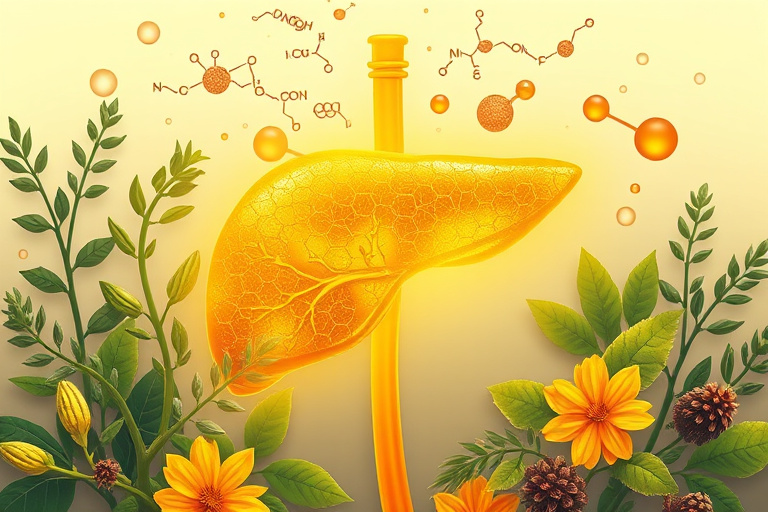Introduction
In recent years, berberine has garnered increasing attention for its potential benefits in supporting liver health. This natural compound, derived from various plants such as goldenseal and barberry, is traditionally used in herbal medicine. As scientific interest grows, many are curious about whether berberine can aid in liver detoxification, reduce fat accumulation, and promote liver repair. The purpose of this guide is to evaluate the current scientific evidence surrounding berberine’s effects on liver function, helping you understand its potential role in maintaining or improving liver health.
How Berberine May Benefit Liver Function and Metabolic Health
Berberine is well-known for its ability to improve insulin sensitivity and regulate glucose metabolism. These effects are particularly relevant because metabolic health directly influences liver conditions such as fatty liver disease. When insulin resistance occurs, excess fat tends to accumulate in the liver, leading to non-alcoholic fatty liver disease (NAFLD). Research indicates that berberine can help reduce liver fat and inflammation by improving metabolic parameters. For example, studies have shown that berberine supplementation can lead to decreased liver fat content and improved liver enzyme levels, suggesting a positive impact on liver health through better metabolic regulation.
The Science Behind Berberine’s Hepatoprotective Effects
Laboratory and clinical studies support berberine’s hepatoprotective properties. These studies suggest that berberine influences liver enzymes and enhances detoxification pathways. Its mechanisms include antioxidant activity, which reduces oxidative stress in liver cells, and anti-inflammatory effects that mitigate liver inflammation. Additionally, berberine appears to regulate lipid metabolism within the liver, helping to prevent fat accumulation and cellular damage. Collectively, these actions contribute to its potential to protect the liver from various forms of injury and support its natural repair processes.
Safety Considerations and Optimal Dosage for Liver Support
Generally, berberine has a favorable safety profile when used appropriately. Scientific studies typically recommend dosages ranging from 900 mg to 1500 mg per day, divided into multiple doses. However, individuals with existing liver conditions or those experiencing liver injury should consult healthcare providers before starting berberine supplementation. It is especially important to consider potential interactions with medications metabolized by the liver, as berberine can influence liver enzyme activity and drug metabolism.
Understanding the Impact of Berberine on Liver Detoxification
Berberine interacts with liver enzymes involved in detoxification processes, particularly those in phase I and phase II pathways. Evidence suggests that berberine can modulate these pathways, potentially enhancing the liver’s ability to process and eliminate toxins. This interaction may support overall liver cleansing and detox health, making berberine a candidate for those seeking to bolster their body’s natural detoxification mechanisms. Incorporating berberine into a comprehensive liver health plan can be beneficial, especially when combined with lifestyle practices such as a balanced diet and regular exercise.
Possible Side Effects and Drug Interactions in Liver-Related Contexts
While berberine is generally well-tolerated, some individuals may experience mild side effects such as gastrointestinal discomfort, constipation, or nausea. Additionally, berberine can interact with medications that are processed by the liver, potentially altering their effectiveness or increasing the risk of adverse effects. Therefore, anyone considering berberine, especially those on medication or with existing liver issues, should consult healthcare providers to ensure safe use. This cautious approach helps prevent unintended interactions and supports optimal health outcomes.
Evidence-Based Recommendations for Using Berberine for Liver Health
Current scientific consensus indicates that berberine may offer benefits for liver health, particularly in improving metabolic function and protecting against liver injury. To incorporate berberine safely, it is advisable to follow dosage guidelines supported by research—typically around 900 to 1500 mg daily—and to do so under medical supervision if you have pre-existing conditions. Additionally, supporting liver health involves more than supplementation; maintaining a healthy diet, limiting alcohol intake, and engaging in regular physical activity are crucial. For those interested in natural supplements, exploring options like hepatoburn may provide additional support for liver detoxification and overall health.
Final Thoughts: What the Research Means for Your Liver Health
In summary, berberine shows promise as a natural agent that can support liver function through various mechanisms, including reducing fat accumulation, combating inflammation, and enhancing detoxification pathways. However, it is important to recognize its limitations and the need for further research to fully understand its long-term effects. Consulting healthcare professionals before adding berberine to your regimen ensures safe and effective use. As scientific studies continue to evolve, future research may clarify its role in liver health and expand its therapeutic potential.
Call to Action
If you are considering berberine for liver support, always seek personalized advice from healthcare providers to determine the most appropriate approach for your individual health needs. For more information on how natural supplements can aid in liver health, explore reputable resources and discuss options with your medical team. Taking proactive steps now can help maintain your liver’s vital functions and overall well-being.




